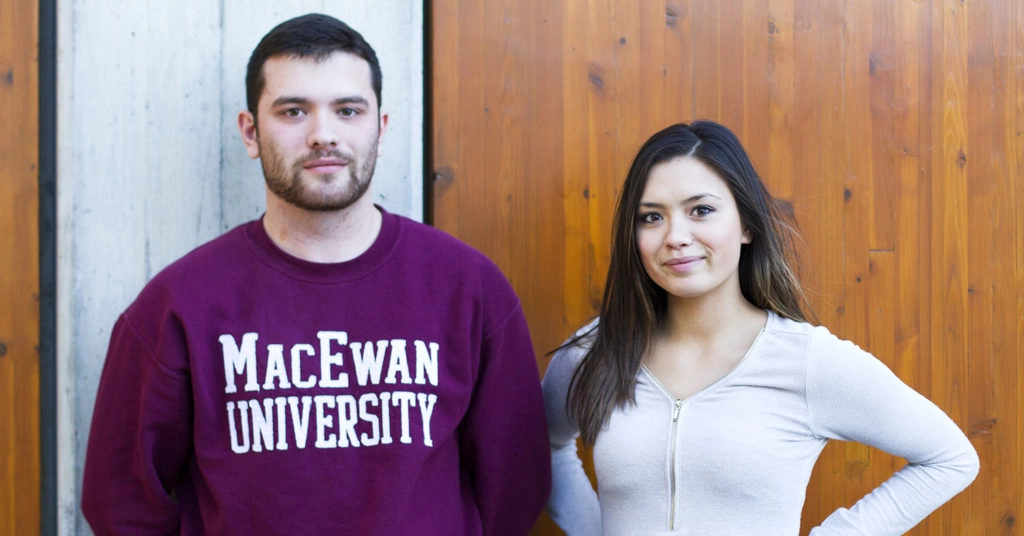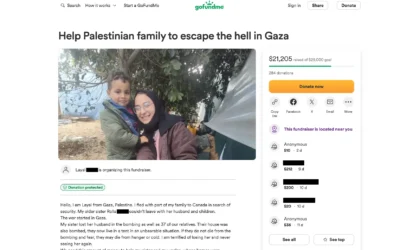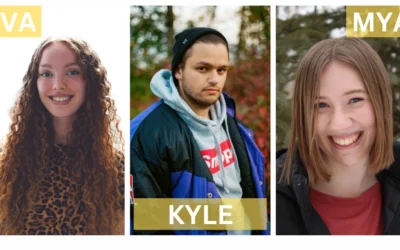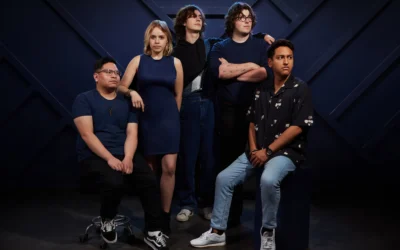Sitting in the brightly decorated Aboriginal Education Centre gathering room, the Aboriginal Students Club’s current president, Marlisa Brown, and former president, Danielle Lightning, discussed the club.
[M – Marlisa, D – Danielle]
What are the goals of the Aboriginal Students Club?
M: To provide a support system for our peers. And I know the name kind of sounds exclusive, but it’s really not. Basically, everyone is welcome to join. It’s a home away from home — a place where you can connect, feel included, share ideas, and just make new friendships.
In what ways does the ASC help Aboriginal students face the challenges and opportunities of university life?
M: It’s a place you can come and meet new people and have some connection of sorts — where you can become friends, or class buddies, or whatnot. We do a variety of things throughout the whole year. One of the things that we do is a round dance, and that is in partnership with other associations, such as the U of A Native Studies Students’ Association. They pretty much connect all the other aboriginal student clubs and associations together, and then we host a round dance to honour the students. That brings together the cultures and traditions, as well as being a place to socialize and to dance.
D: Another aspect of it would be that it’s a home away from home. Maybe you’re from a farm community and it’s your first year or second year, and it’s somewhere to have family support. You can print and use computers and different resources, or use it as a quiet place to study if you don’t have that at home.
What sort of events and activities does the club offer throughout the year?
M: We do bowling, we do movie nights, and we also have a year-end banquet where we celebrate the school year and acknowledge all the graduates and volunteers who helped out. We also do donations towards the Old Strathcona Youth Society. Throughout the winter, you can donate warm clothes, and gloves, and that kind of stuff.
D: Last Halloween, we did the corn maze. That was when the group was just starting, so getting everyone organized and to the maze was an adventure all on its own. We got lost there, and it was fun — a good icebreaker.
What are the benefits of learning and preserving traditional aboriginal culture, both for Aboriginal and non-Aboriginal students?
D: I’d say diversity. Once you’re out of university and in any workforce, there’s a lot of diversity, so having that inclusion in your class is another step towards becoming integrated into that.
M: I grew up in the North, but I had moved away from my home community, so I didn’t really get to grow up around my home culture. Coming here was a way of reintroducing myself into indigenous culture.
Many students walk by the Aboriginal Education Centre (Building 7) on their way to class and notice the large silver lettering in front of the office area. What is significance of this lettering?
M: It basically says “welcome” in different First Nations and Inuit languages. I think it piques interest and creates awareness. In a sense, you can kind of think of it as revitalization of aboriginal languages.
What role do you think educational institutions like MacEwan should play in working to end prejudice toward Aboriginal people in Canada?
M: They should work to have more open-mindedness and acceptance, because a lot of the stereotypes and stuff limit you from fully understanding or appreciating what’s around you. MacEwan is very diverse, and I think with Culture Days and the different clubs that are here, that pushes forward how diverse MacEwan is. There’s an indigenous English course that they are implementing, or have implemented, this year. So, I think they are taking a lot of initiatives to involve aboriginal culture into the curriculum or into the clubs.
After the release of the Truth and Reconciliation Commission (TRC) report and its recommendations, some Canadian universities have decided to include aboriginal studies classes in required coursework. Does ASC have a stance on whether MacEwan should do the same?
M: I definitely believe that. I’ve actually encountered students before who, if we’re talking about Indigenous issues in the class, will say, “I don’t get why we’re talking about this,” and that was because of their lack of understanding of history and colonization, and how it’s affected today’s society and perceptions. So, I think it is important. People need to be more aware of it and realize that that’s the reason behind so much ignorance today around aboriginal culture. Aboriginal studies classes are a way to have more reconciliation, so that all cultures can come together and all cultures can be on a level of respect.
From what I’ve noticed, there has been a lot of media surrounding the TRC, and they have been producing a lot of reports, so I think just the fact that they’re doing that makes a difference. They’re really putting in an effort to try to make it known what’s been happening — rewriting the books. I’ve always been interested in bringing activism into the club — social issues or Indigenous issues and whatnot — and seeing where we can go from there. Danielle and I are going to a workshop next weekend, and one of the Speaker Series is going to be about the TRC and what we can do, as leaders, to navigate through it.
Is there anything else you’d like students to know about the ASC?
M: We have a Facebook page — that’s where we normally communicate everything. It’s called “Aboriginal Student Club CCC,” and anyone can join. Everyone is welcome.
This interview has been edited for length and clarity.





0 Comments